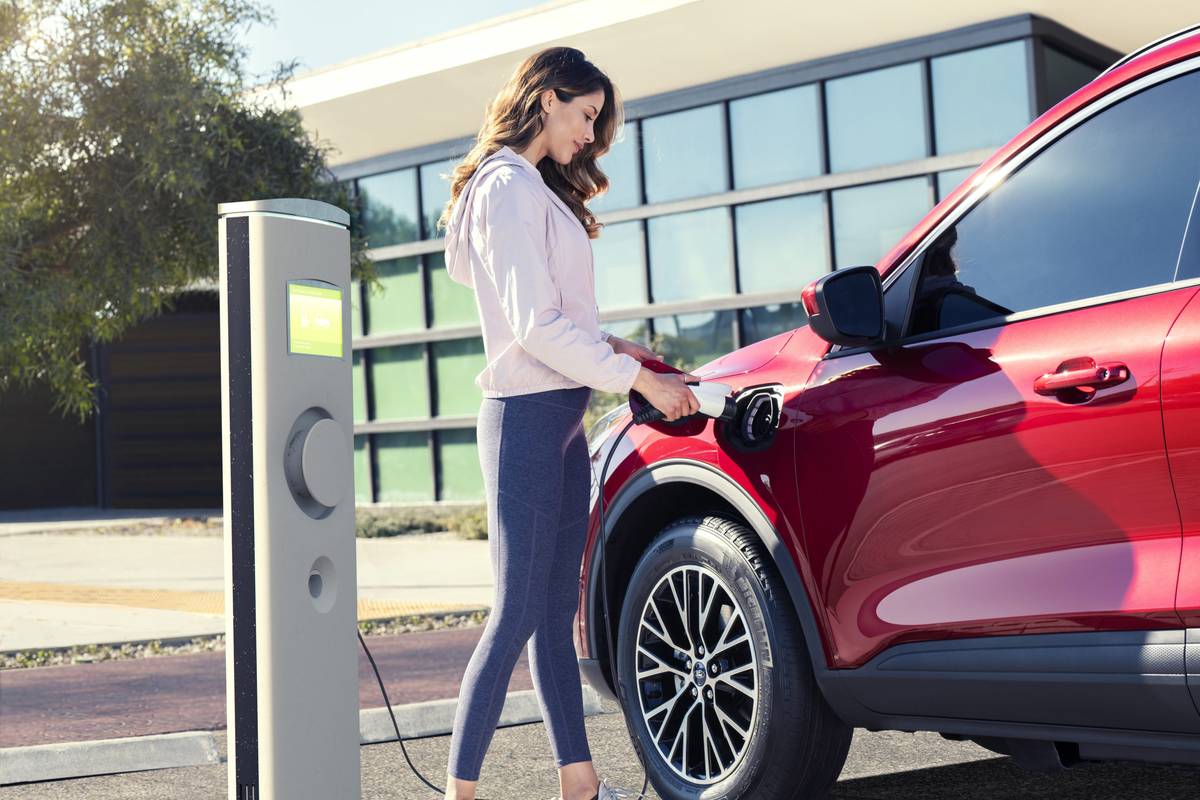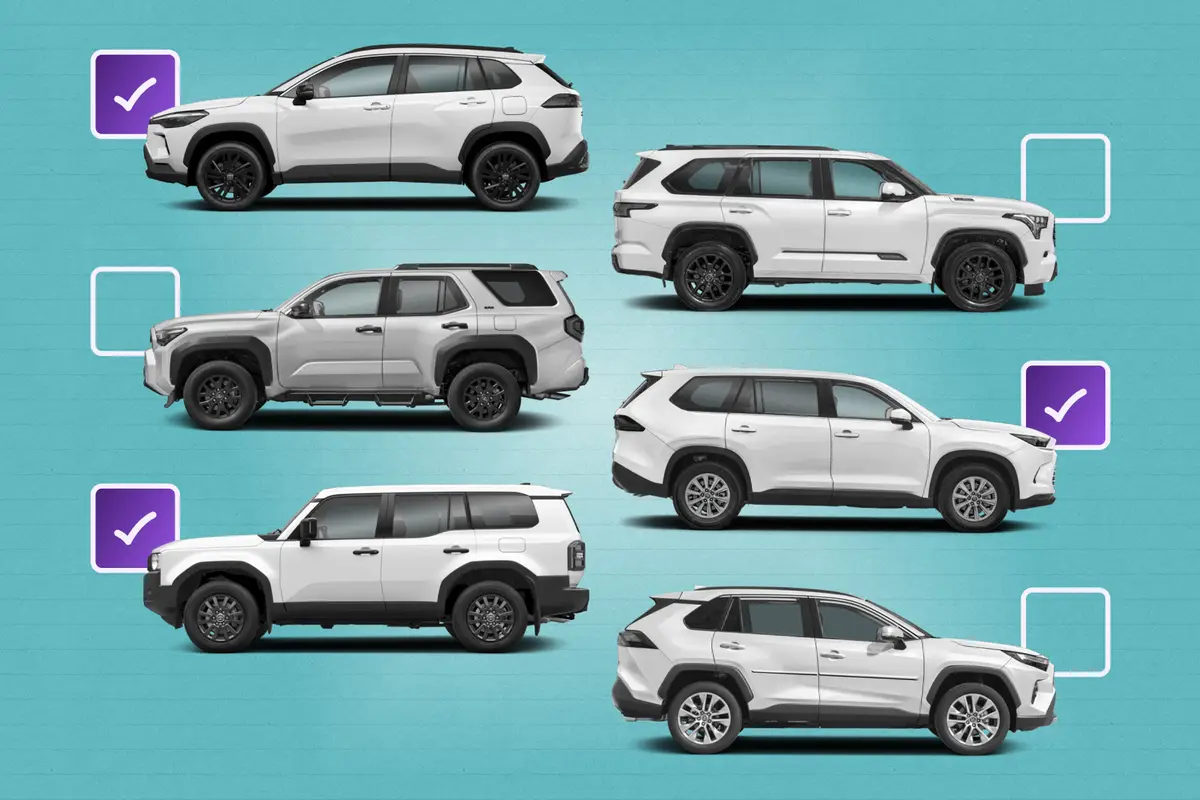2020 Ford Escape Plug-In Hybrid: Best-in-Class Equivalent Fuel Economy, Decent EV Driving Range


Ford has announced the estimated efficiency ratings for the upcoming first-ever Escape Plug-in Hybrid, and the automaker claims the new compact SUV has captured the best-in-class rating with 100 mpg-equivalent. That’s 6 mpg-e more than the estimated rating for the upcoming 2021 Toyota RAV4 Prime plug-in hybrid, but the new Escape PHEV is also expected to be able to travel 37 miles on electricity alone.
Related: 2020 Ford Escape Hybrid: 7 Things We Like and 2 Things We Don’t
- ${price_badge()}
- ${ami_badge()}
- ${battery_badge()}${ev_report_link()}
- ${hot_car_badge()}
- ${award_badge()}
- ${cpo_badge()}
${price_badge_description}
${ami_badge_description}
The EV Battery Rating is based on this vehicle's current expected range relative to the vehicles expected range when new. ${battery_badge_text}
This vehicle is certified pre-owned, backed by a manufacturer warranty, and typically undergoes a rigorous multi-point inspection to ensure quality and reliability.
This vehicle is currently in high demand given its competitive price, desirable features, and overall condition, and may have a higher chance of selling quickly.
Shop the 2020 Ford Escape near you


That’s a significant 5 miles less than the RAV4 Prime’s manufacturer-anticipated 42 miles of range, though it’s 11 miles more than the company’s own Fusion Energi plug-in hybrid sedan, which the Escape PHEV ostensibly replaces in the lineup. Only one other plug-in hybrid compact non-luxury SUV is currently available in the U.S., the Mitsubishi Outlander PHEV, which is rated at 74 mpg-e and only 22 miles of all-electric range.

What the Heck Is an MPG-E?
What exactly does mpg-equivalent mean? Well, it’s the way the EPA measures efficiency in vehicles that use some portion of non-liquid fuel for propulsion (i.e., battery-powered vehicles). Warning: There’s math ahead.
Here’s how we start: The standard unit for measuring electricity when it comes to electric vehicles is the kilowatt-hour, or kwh. If you were to burn one gallon of gasoline, it would generate heat of 115,000 British thermal units (BTUs). To generate that same amount of heat using electricity, you need 33.7 kilowatt-hours of electricity. Therefore, the reasoning goes that there is 33.7 kwh of equivalent electrical heat energy in one gallon of gasoline. Good so far?
Now, electrical motors use energy far more efficiently than gasoline engines. As much as 40% of the energy generated by a controlled gasoline explosion (basically, what your engine is doing hundreds or thousands of times every minute) is wasted as heat and does not go toward moving the vehicle, which is why your gas engine gets hot enough to cook food on.
But as much as 90% of an electric motor’s energy goes toward moving the vehicle, so the efficiency numbers are much higher and the needs for energy much lower. Consider that a 100-kwh battery pack in a Tesla Model S has the equivalent energy of less than 3 gallons of gasoline but can move the car more than 300 miles. That’s because it uses the energy stored on board much more efficiently than a gasoline car, and it doesn’t waste a lot of the energy as excess heat.

So in EPA calculations of the vehicle’s various systems, a car that can go 100 miles on 33.7 kwh of electricity gets rated 100 mpg-e, like this new Escape PHEV. If it can go 90 miles on 33.7 kwh, then it gets 90 mpg-e. But if the Escape PHEV is rated to go 100 miles on one gasoline-gallon equivalent, why does it only have a 37-mile electric range? Because the battery in the Escape PHEV isn’t big enough to go a full 100 miles, as its capacity is only 14.4 kwh, or less than half the capacity it would need to theoretically go all 100 miles. As such, it only goes 37 miles on electricity alone, but it uses the energy it has at the rate of a vehicle that could go 100 EV miles.
The new Escape PHEV is expected to go on sale later in 2020 with a starting price of less than $35,000 (excluding destination).
More From Cars.com:
- 2020 Ford Escape Hybrid, Lincoln Aviator Plug-In Offer Fuel-Sipping Alternatives
- 2020 Ford Escape Hybrid Review: Reaching Fuel Potential?
- With Specific Headlights, 2020 Ford Escape, Lincoln Corsair Earn Safety Nod
- 2020 Ford Escape: Everything You Need to Know
- 2020 Ford Escape Video: An Engine for Everyone
Cars.com’s Editorial department is your source for automotive news and reviews. In line with Cars.com’s long-standing ethics policy, editors and reviewers don’t accept gifts or free trips from automakers. The Editorial department is independent of Cars.com’s advertising, sales and sponsored content departments.

Detroit Bureau Chief Aaron Bragman has had over 25 years of experience in the auto industry as a journalist, analyst, purchasing agent and program manager. Bragman grew up around his father’s classic Triumph sports cars (which were all sold and gone when he turned 16, much to his frustration) and comes from a Detroit family where cars put food on tables as much as smiles on faces. Today, he’s a member of the Automotive Press Association and the Midwest Automotive Media Association. His pronouns are he/him, but his adjectives are fat/sassy.
Featured stories



